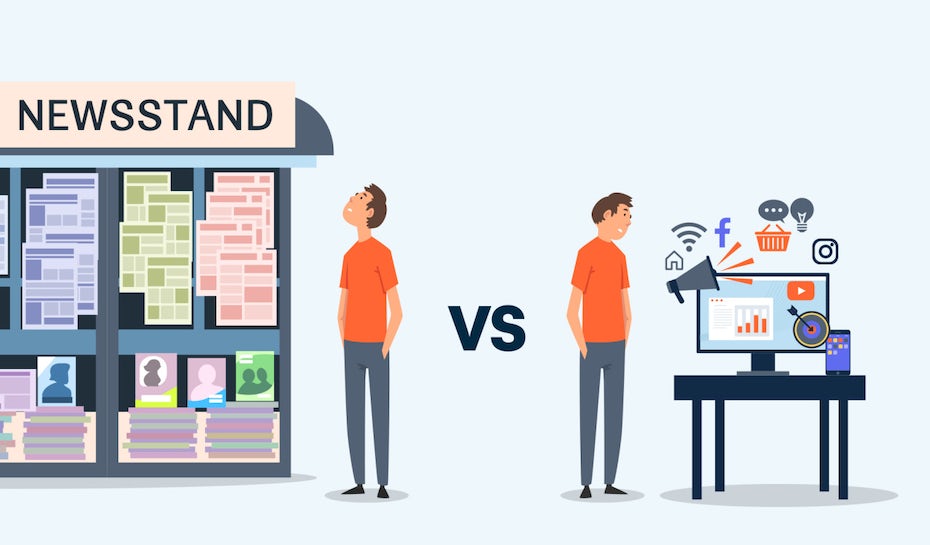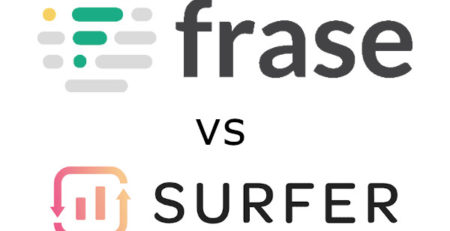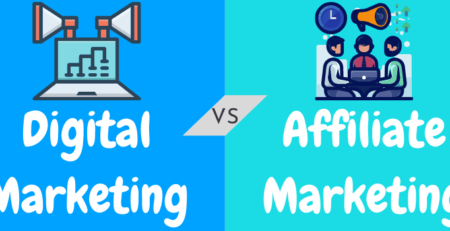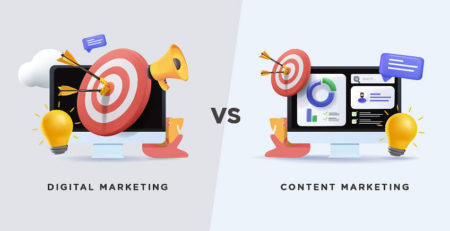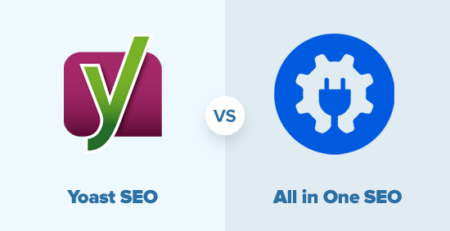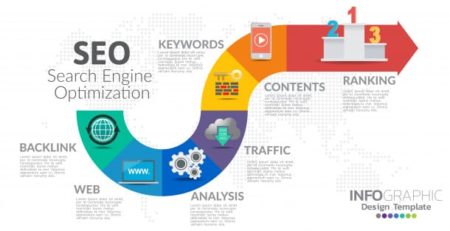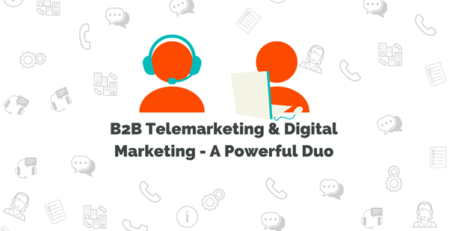Marketing Vs Digital Marketing Degree: Get The Main Difference In 2023
So you’re interested in a degree in marketing, but you’re wondering if you should go for a traditional marketing degree or a digital marketing degree. Well, you’ve come to the right place! In this article, we’ll explore the differences between marketing and digital marketing degrees – which one is right for you? Let’s dive in and find out!
Now, you might be asking yourself, “What’s the big difference between marketing and digital marketing?” Well, my friend, the answer lies in the name. Marketing encompasses everything related to promoting and selling a product or service, while digital marketing focuses specifically on utilizing online platforms and tools to reach and engage with customers.
So, why choose a marketing degree? Marketing is a broad field that covers a range of skills and strategies, from market research and advertising to brand management and public relations. It’s all about understanding consumer behavior and finding creative ways to connect with your target audience. A traditional marketing degree provides a solid foundation in these principles and prepares you for a variety of roles in the industry.
Now, digital marketing is a whole different ball game. In this digital age, businesses need to have a strong online presence to stay competitive. A digital marketing degree equips you with the knowledge and skills to navigate the ever-changing digital landscape. You’ll learn about search engine optimization (SEO), social media marketing, content creation, and data analytics – all essential components of a successful digital marketing strategy.
So, whether you’re drawn to the traditional side of marketing or the exciting world of digital marketing, there’s no wrong choice. It all comes down to your interests, strengths, and career goals. Ready to make a decision? Let’s explore Marketing Vs Digital Marketing Degree to help you choose the path that’s right for you!
Are you considering a degree in marketing or digital marketing? While both options have their merits, it’s important to understand the differences. Here are five key features to consider:
- Curriculum: A marketing degree covers a broad range of marketing principles, while a digital marketing degree focuses specifically on online strategies.
- Career Opportunities: A marketing degree opens doors in various industries, while a digital marketing degree prepares you for roles in the digital space.
- Technical Skills: Digital marketing degrees emphasize skills like SEO, SEM, and social media management, whereas marketing degrees provide a broader skill set.
- Job Market: Job prospects for digital marketing professionals are growing rapidly, while traditional marketing roles remain steady.
- Industry Trends: Digital marketing degrees keep you up-to-date with the latest technology and emerging trends.
Consider your interests and career goals to choose the program that suits you best!
Key Takeaways: Marketing Vs Digital Marketing Degree
Please find below the key points to remember about the comparison between a Marketing degree and a Digital Marketing degree:
1. A Marketing degree focuses on broader marketing principles, including traditional marketing strategies and techniques.
2. A Digital Marketing degree is specifically tailored to the digital landscape, teaching skills like SEO, social media marketing, and analytics.
3. Both degrees offer valuable knowledge and skills for a career in marketing, but a Digital Marketing degree puts a stronger emphasis on digital platforms.
4. Marketing degrees may cover a wide range of marketing areas, such as market research, consumer behavior, and advertising.
5. Digital Marketing degrees, on the other hand, delve deeper into topics like content marketing, online advertising, and email marketing.
Remember, whether you choose a Marketing or Digital Marketing degree, both can lead to exciting career opportunities in the dynamic field of marketing!
Comparing Marketing vs. Digital Marketing Degree
In today’s digital age, marketing has become an essential aspect of business success. As the field of marketing continues to evolve, there are now specialized degree programs that focus specifically on digital marketing. Both a marketing degree and a digital marketing degree have their own unique advantages and can lead to exciting career opportunities. In this article, we will compare the two degrees and explore their key features, user experiences, pros and cons, price points, and ultimately determine which degree is the better choice.
Overview of Marketing Degree
A marketing degree provides a comprehensive understanding of marketing principles, strategies, and tactics. It covers a wide range of topics such as consumer behavior, advertising, market research, public relations, and brand management. Students pursuing a marketing degree gain a solid foundation in traditional marketing techniques and learn how to develop effective marketing campaigns across different platforms.
With a marketing degree, graduates have the option to work in various industries such as advertising agencies, corporate marketing departments, market research companies, and consulting firms. They can pursue careers as marketing managers, brand managers, market researchers, advertising executives, and public relations specialists.
Overall, a marketing degree offers a broad education in marketing principles and prepares students for diverse career opportunities in the field.
Overview of Digital Marketing Degree
A digital marketing degree, on the other hand, is specifically focused on the growing field of digital marketing. This degree program provides in-depth knowledge of digital marketing strategies, techniques, and technologies. Students learn about search engine optimization (SEO), social media marketing, content marketing, email marketing, web analytics, and digital advertising.
With a digital marketing degree, graduates are well-equipped to navigate the digital landscape and develop and implement successful digital marketing campaigns. They have the skills to optimize websites for search engines, create engaging social media content, analyze digital marketing metrics, and use data-driven insights to drive marketing decision-making.
Career opportunities for digital marketing degree graduates include digital marketing managers, social media managers, content marketers, SEO specialists, digital analysts, and digital advertising executives. The digital marketing industry is rapidly growing, and professionals with expertise in this field are in high demand.
Key Features Compared: Marketing Degree vs. Digital Marketing Degree
When comparing a marketing degree and a digital marketing degree, it’s important to consider their key features. Let’s explore three key features of each degree:
Marketing Degree Features
1. Comprehensive Understanding of Marketing Principles
A marketing degree provides a broad and comprehensive understanding of marketing principles, strategies, and tactics. Students learn about consumer behavior, market research, advertising, and brand management. This foundation allows graduates to adapt to various marketing roles and industries.
2. Traditional Marketing Expertise
A marketing degree emphasizes traditional marketing techniques such as print advertising, television commercials, and direct mail. Students gain a solid understanding of these traditional channels and learn how to develop effective marketing campaigns within these mediums.
3. Diverse Career Opportunities
With a marketing degree, graduates have a wide range of career opportunities in different industries. They can work in advertising agencies, corporate marketing departments, market research firms, and consulting companies. The versatility of a marketing degree allows graduates to explore various marketing roles and find the perfect fit for their skills and interests.
Digital Marketing Degree Features
1. Focus on Digital Marketing Strategies
A digital marketing degree is specifically focused on digital marketing strategies, techniques, and technologies. Students gain expertise in search engine optimization (SEO), social media marketing, content marketing, email marketing, and digital advertising. This specialized knowledge prepares graduates for the fast-paced digital marketing industry.
2. Proficiency in Digital Tools and Platforms
With a digital marketing degree, students acquire hands-on experience with digital tools and platforms used in the industry. They learn to navigate social media platforms, use web analytics tools, optimize websites for search engines, and create compelling digital content. This practical knowledge equips graduates with the skills necessary to succeed in digital marketing roles.
3. High Demand in the Job Market
The demand for digital marketing professionals continues to increase as businesses focus more on online marketing and e-commerce. Graduates with a digital marketing degree are well-positioned to pursue a variety of in-demand careers such as digital marketing managers, social media managers, SEO specialists, and content marketers.
User Experience
The user experience of both marketing and digital marketing degree programs can greatly vary depending on the institution and the curriculum. However, in general, students pursuing a marketing degree can expect a more traditional classroom experience with a mix of lectures, group projects, and case studies. They have the opportunity to network with peers and industry professionals through internships and conferences.
On the other hand, students pursuing a digital marketing degree often experience a more hands-on and practical learning environment. They may have access to cutting-edge digital tools and software, participate in real-world projects, and work on digital marketing campaigns for local businesses. The digital marketing field is constantly evolving, so students in this degree program can expect to stay up to date with the latest industry trends and developments.
Ultimately, the user experience of both degree programs can be rewarding, as they provide valuable knowledge and skills required in the marketing industry.
Pros and Cons
When considering a marketing degree or a digital marketing degree, it’s important to weigh the pros and cons of each option. Let’s explore the advantages and disadvantages of both degree programs:
Marketing Degree Pros:
- Comprehensive understanding of marketing principles
- Versatile skills applicable to various industries
- Opportunity to learn traditional marketing techniques
Marketing Degree Cons:
- May not provide in-depth knowledge of digital marketing strategies
- May not have as much focus on hands-on experience with digital tools
- Less specialized compared to a digital marketing degree
Digital Marketing Degree Pros:
- Specialized knowledge in digital marketing strategies and techniques
- Hands-on experience with digital tools and platforms
- High demand for digital marketing professionals
Digital Marketing Degree Cons:
- May not provide as broad of a foundation in traditional marketing principles
- Can be more focused on specific digital marketing skills
- Curriculum and quality of programs may vary
Price Comparison
The price of a marketing degree or a digital marketing degree can vary significantly depending on the institution, location, and program format (in-person or online). Tuition costs can range from a few thousand dollars per year to tens of thousands of dollars per year.
When comparing prices, it’s important to consider the overall value of the degree and the potential return on investment. Factors such as the reputation of the institution, alumni network, industry connections, internships, and job placement rates should be taken into account.
Additionally, scholarships, grants, and financial aid options may be available to help offset the costs of tuition. It’s important for students to research and consider all financial aspects before making a decision.
Comparison Table
| Feature | Marketing Degree | Digital Marketing Degree |
|---|---|---|
| Comprehensive Understanding of Marketing Principles | Yes | No |
| Traditional Marketing Expertise | Yes | No |
| Digital Marketing Strategies | No | Yes |
| Digital Tools and Platforms | No | Yes |
| Diverse Career Opportunities | Yes | No |
| High Demand in the Job Market | No | Yes |
Which is Better – Marketing vs. Digital Marketing Degree?
Choosing between a marketing degree and a digital marketing degree ultimately depends on individual career goals and preferences. Both degrees offer valuable skills and knowledge that can lead to successful careers in the marketing industry.
If you are interested in a broader understanding of marketing principles and traditional marketing techniques, a marketing degree may be the better choice for you. This degree provides a versatile skill set that can be applied to a variety of marketing roles and industries.
On the other hand, if you have a strong interest in digital marketing, want to specialize in digital strategies and technologies, and thrive in the fast-paced digital landscape, a digital marketing degree may be the better option. This degree equips you with the necessary skills and knowledge to excel in the growing field of digital marketing.
Ultimately, the decision boils down to personal interests, career goals, and the specific curriculum and opportunities offered by different institutions. It’s important to thoroughly research and consider the pros and cons of each degree program before making a decision.
3 Reasons to Choose Marketing Degree:
- Versatile skills applicable to various industries
- Comprehensive understanding of marketing principles
- Traditional marketing expertise
3 Reasons to Choose Digital Marketing Degree:
- Specialized knowledge in digital marketing strategies and technologies
- Hands-on experience with digital tools and platforms
- High demand for digital marketing professionals
Frequently Asked Questions
When it comes to pursuing a career in marketing, there are different paths you can take. One common dilemma is choosing between a general marketing degree and a degree in digital marketing. To help you understand the differences and make an informed decision, we’ve compiled a list of frequently asked questions.
1. What is the difference between a marketing degree and a digital marketing degree?
A marketing degree encompasses a broad range of subjects, including advertising, market research, consumer behavior, and strategic planning. It covers both traditional marketing methods and digital marketing concepts. On the other hand, a digital marketing degree focuses specifically on digital channels and strategies, such as social media marketing, search engine optimization, content marketing, and data analytics. While both degrees provide a foundation in marketing principles, a digital marketing degree hones in on the digital landscape.
If you’re fascinated by the digital world and want to specialize in online marketing strategies, a digital marketing degree can provide you with the skills and knowledge needed to excel in this rapidly growing field. However, if you prefer a more comprehensive understanding of marketing that includes traditional and digital channels, a general marketing degree might be a better fit.
2. Which degree offers better job prospects?
Both a marketing degree and a digital marketing degree can open doors to various career opportunities, as companies across industries require marketing professionals to promote their products or services. However, the demand for digital marketing skills is on the rise due to the increasing importance of online marketing in today’s digital age. With the rapid growth of e-commerce and digital advertising, companies are seeking professionals with expertise in digital marketing strategies and technologies. Therefore, a digital marketing degree may offer better job prospects in terms of the number of available positions and career growth potential.
That being said, the job market is competitive, and employers value a combination of skills and experience. It’s beneficial to complement your degree with practical experience, internships, or certifications that demonstrate your practical knowledge and proficiency in both digital and traditional marketing.
3. Can I pursue a digital marketing career with a general marketing degree?
Yes, you can pursue a digital marketing career with a general marketing degree. While a digital marketing degree offers specialized knowledge in digital marketing strategies, it is not the only path to entering this field. A general marketing degree provides a solid foundation in marketing principles and allows you to gain a broad understanding of various marketing channels and strategies, including digital marketing.
What matters most to employers is your skill set and practical knowledge in digital marketing. To enhance your prospects in the digital marketing industry, you can supplement your general marketing degree with additional courses, certifications, or practical experience that focus on digital marketing techniques. Building a strong portfolio showcasing your digital marketing skills can also help you stand out and increase your chances of landing a digital marketing position.
4. What are the salary expectations for a marketing professional compared to a digital marketing professional?
Salary expectations can vary depending on factors such as location, industry, level of experience, and job role. Generally, marketing professionals with a general marketing degree can expect a competitive salary, especially as they advance in their careers and take on more senior roles. According to the U.S. Bureau of Labor Statistics, the median annual wage for marketing managers was $141,490 as of May 2020.
However, due to the specialized nature of digital marketing and the high demand for digital marketing skills, digital marketing professionals may have the potential to command higher salaries. As digital marketing encompasses various roles, such as digital marketing specialist, social media manager, search engine optimization (SEO) specialist, and digital strategist, salary ranges can vary. According to Glassdoor, the average base pay for a digital marketing manager in the United States is around $73,114 per year.
5. Which degree is better for someone interested in starting their own business?
Both a general marketing degree and a digital marketing degree can provide valuable knowledge and skills for someone interested in starting their own business. A general marketing degree covers a wide range of marketing principles and strategies, including how to identify target markets, create effective marketing campaigns, and analyze consumer behavior. This knowledge can be invaluable when starting and promoting a business.
On the other hand, a digital marketing degree can be particularly beneficial for entrepreneurs starting an online-based business or those heavily reliant on digital marketing channels. It equips individuals with the expertise to navigate the digital landscape, effectively market products or services online, and utilize digital marketing tools and platforms. However, it’s worth noting that success in entrepreneurship often hinges on a combination of various skills, including marketing, sales, finance, and leadership, rather than solely relying on a specific degree.
Is a MARKETING DEGREE worth it?
Summary
Now that we’ve learned about marketing and digital marketing, let’s summarize what we’ve discovered. Marketing is all about promoting products or services to customers. It involves understanding customer needs and finding ways to meet them.
Digital marketing, on the other hand, is a specific type of marketing that uses digital platforms like websites and social media to reach and engage with customers. It’s a growing field with lots of new opportunities.
In this article, we’ve seen that both marketing and digital marketing require creativity, communication skills, and a good understanding of customer behavior. They can lead to exciting careers with lots of potential for growth.
So, whether you choose to study marketing or digital marketing, you’ll be equipped with the skills to make a big impact in the business world. It’s important to follow your interests and pick the path that excites you the most.
Remember, the world of marketing is always changing, so it’s important to stay curious and keep learning new things. With dedication and hard work, you can succeed in whatever marketing field you choose!

